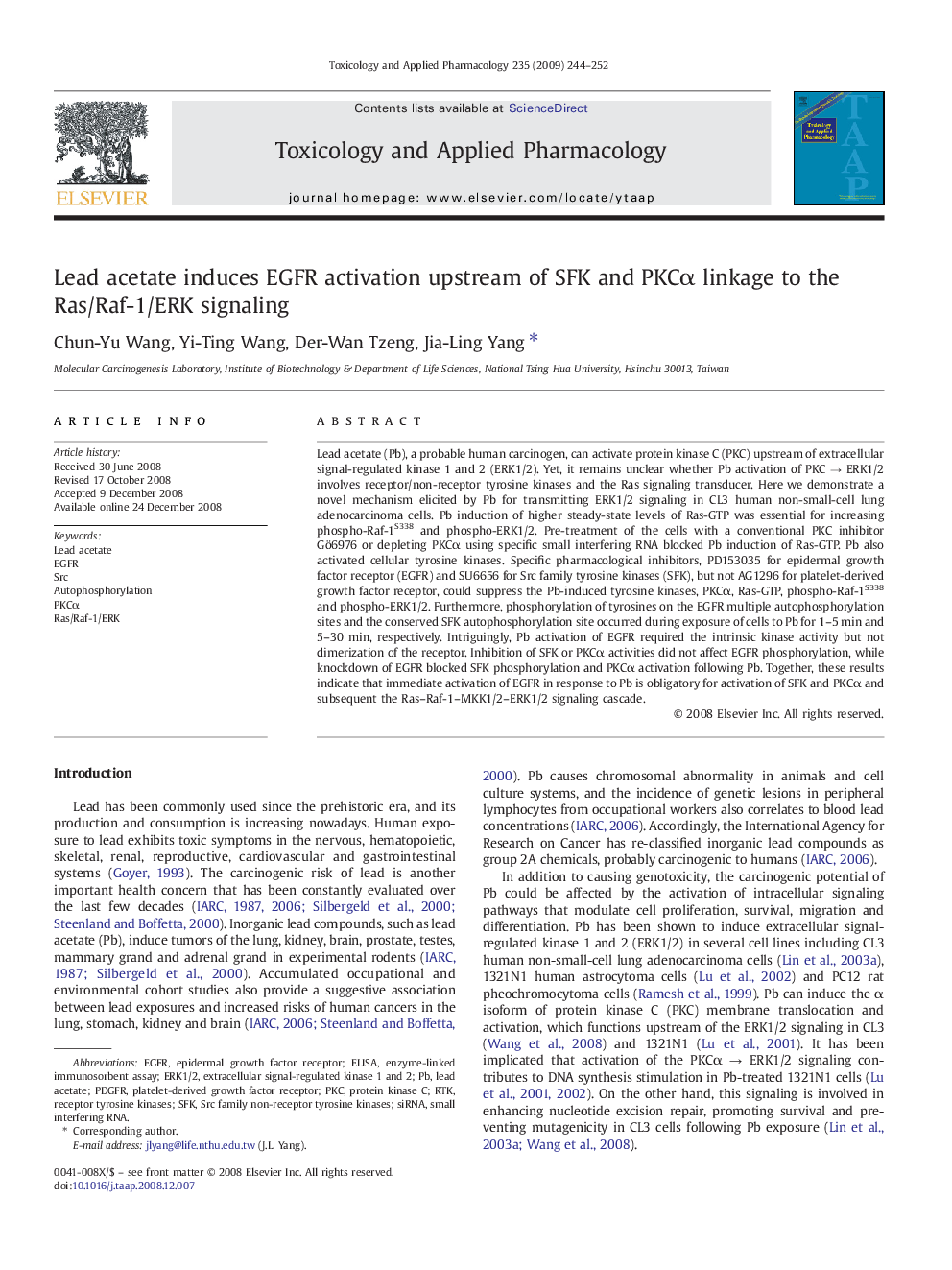| Article ID | Journal | Published Year | Pages | File Type |
|---|---|---|---|---|
| 2570080 | Toxicology and Applied Pharmacology | 2009 | 9 Pages |
Lead acetate (Pb), a probable human carcinogen, can activate protein kinase C (PKC) upstream of extracellular signal-regulated kinase 1 and 2 (ERK1/2). Yet, it remains unclear whether Pb activation of PKC → ERK1/2 involves receptor/non-receptor tyrosine kinases and the Ras signaling transducer. Here we demonstrate a novel mechanism elicited by Pb for transmitting ERK1/2 signaling in CL3 human non-small-cell lung adenocarcinoma cells. Pb induction of higher steady-state levels of Ras-GTP was essential for increasing phospho-Raf-1S338 and phospho-ERK1/2. Pre-treatment of the cells with a conventional PKC inhibitor Gö6976 or depleting PKCα using specific small interfering RNA blocked Pb induction of Ras-GTP. Pb also activated cellular tyrosine kinases. Specific pharmacological inhibitors, PD153035 for epidermal growth factor receptor (EGFR) and SU6656 for Src family tyrosine kinases (SFK), but not AG1296 for platelet-derived growth factor receptor, could suppress the Pb-induced tyrosine kinases, PKCα, Ras-GTP, phospho-Raf-1S338 and phospho-ERK1/2. Furthermore, phosphorylation of tyrosines on the EGFR multiple autophosphorylation sites and the conserved SFK autophosphorylation site occurred during exposure of cells to Pb for 1–5 min and 5–30 min, respectively. Intriguingly, Pb activation of EGFR required the intrinsic kinase activity but not dimerization of the receptor. Inhibition of SFK or PKCα activities did not affect EGFR phosphorylation, while knockdown of EGFR blocked SFK phosphorylation and PKCα activation following Pb. Together, these results indicate that immediate activation of EGFR in response to Pb is obligatory for activation of SFK and PKCα and subsequent the Ras–Raf-1–MKK1/2–ERK1/2 signaling cascade.
